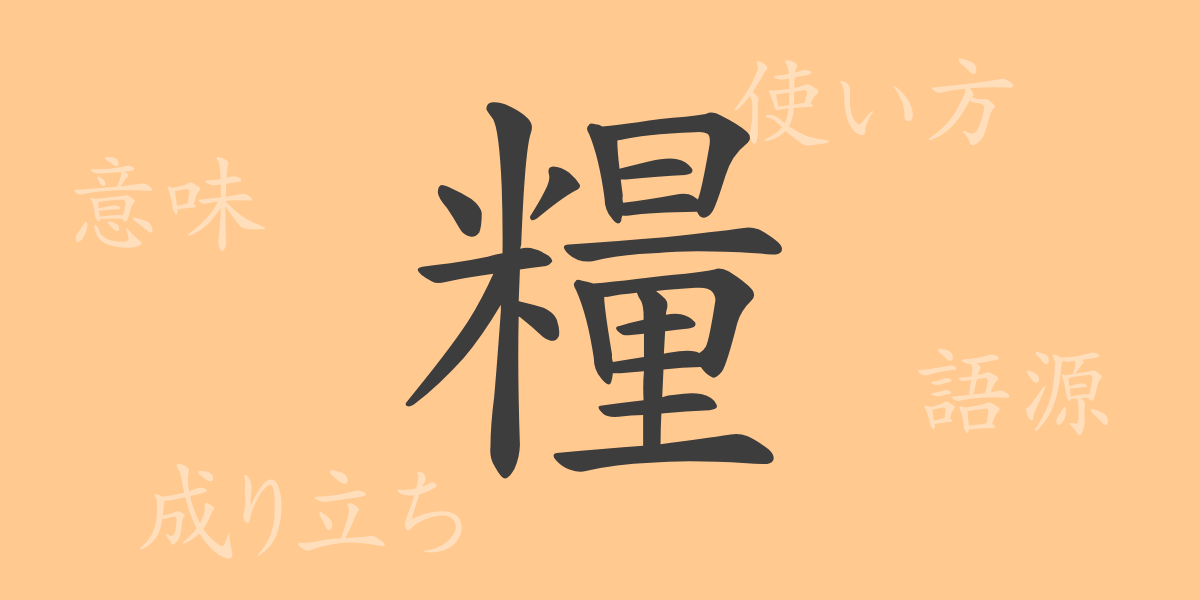Language is a mirror that reflects culture, and the 常用漢字 (じょうようかんじ, jōyō kanji) in Japanese are a testament to its rich expressiveness. Each 漢字 (かんじ, kanji) carries deep meaning, reflecting Japanese life, values, and history. In this article, we spotlight one of Japan’s 常用漢字 (じょうようかんじ, jōyō kanji), the character 糧 (かて, kate), delving into its origins and modern usage.
Origins of 糧 (かて, kate)
The character 糧 (かて, kate) is derived from the ancient Chinese character 粮 (りょう, liáng), which originally meant rice. It signified storing food and referred to food itself. Over time, its meaning expanded to encompass essential supplies and spiritual sustenance necessary for living.
Meaning and Usage of 糧 (かて, kate)
In modern Japanese, the character 糧 (かて, kate) is used primarily in two ways. Firstly, it refers to food or provisions in the literal sense. Secondly, it is used metaphorically to denote spiritual support, knowledge, or experiences that enrich life. For example, “彼の言葉が私の心の糧となった” (His words became sustenance for my heart).
Reading, Stroke Count, and Radical of 糧 (かて, kate)
The 漢字 (かんじ, kanji) 糧 (かて, kate) has multiple readings in Japanese.
- Readings: 音読み (おんよみ, onyomi) is “リョウ” (りょう, ryō), 訓読み (くんよみ, kunyomi) is “かて” (かて, kate)
- Stroke count: 17 strokes
- Radical: 米 (こめへん, komehen)
Idioms, Expressions, and Proverbs Using 糧 (かて, kate)
There are many idioms, expressions, and proverbs that include the character 糧 (かて, kate), deeply rooted in Japanese life and philosophy. For example, the idiom “学問の糧” (がくもんのかて, gakumon no kate) means that knowledge and learning are vital nourishment for life. “心の糧” (こころのかて, kokoro no kate) refers to something that enriches the heart or provides spiritual support. Additionally, “糧を得る” (かてをえる, kate o eru) means to gain new knowledge or experiences and use them as sustenance for life.
Summary of 糧 (かて, kate)
The 漢字 (かんじ, kanji) 糧 (かて, kate) is a companion to our lives and hearts through its historical depth and meaning. Its usage spans from tangible food provisions to abstract concepts of spiritual support. When you encounter the character 糧 (かて, kate) in daily life, take a moment to reflect on its diverse aspects and consider what “sustenance” means to you.

























